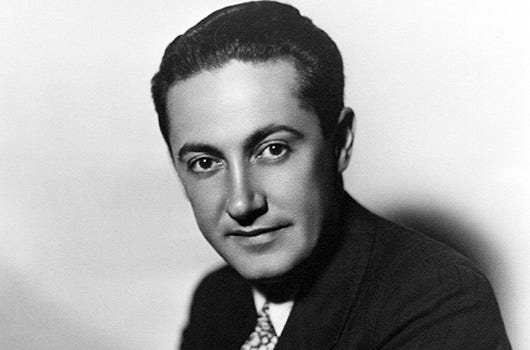
Imagine I’m a film-maker. I make animations. I come up with the story, I write the script, I do the concept art, I draw every frame by hand, I record all the voices, I write and record all the music, I record all the sound effects, and I edit everything into a finished piece. I think we’d all agree that I created that piece of work.
Now I become a little more ambitious. My story gets a little bigger. I recruit voice actors to perform some of the parts. Still, I think, it’s fair to say it’s my movie.
My ambitions continue to grow. I come to accept that music is not my forte, so I bring in a composer and some musicians. And while I’m at it, I buy in some sound effects from a stock library, and get a proper sound designer. Thanks to them and my voice cast, my movies now sound a lot better. But still, it’s clearly my movie.
At this point, I really want to step it up. Hand drawing all the frames is hard work and time-consuming. I’m lucky if I can do 50 frames a day - that’s just two seconds of finished work. It takes a month to do a single minute. A 30-minute short will take me almost three years. So I hire a team of animators. Suddenly, feature-length movies are within my grasp. Even though I’m not doing most of the work, they’re still my movies: my ideas, my stories, my scripts, my concept designs, and I’m overseeing everything and cutting it together.
I’m feeling good about my success, but some of the reviews aren’t kind. They point out flaws in my writing, and criticize my generic characterization. And my self-taught editing skills are amateurish. It stings, but I have to admit, it’s true. So I start working with a scriptwriter, an art designer, and an editor. Now my films are getting to be really good. I’ve built a great team, and my role is to be the director who conceives of the idea and brings them to life.
And finally, I take one further step up the ladder. I start an animation studio. I find myself increasingly involved in finding great stories that could be adapted into films. I see the potential, I raise the money, buy the rights, put the right team together, tell them what I want, and let them create my vision. I have little to no hands-on involvement, but still, I am a film-maker, and these are my movies. Without me, these films would never happen.

Awkward question #1
So, this got me thinking. By outsourcing more and more of the work, I’ve managed to create things I couldn’t possibly have done on my own. I’ve brought in people who can do some things much better than me, and I’ve compensated for the fact that my time is limited. I’ve gone from creating little ten-second flickbooks to full-on professional feature films. And at every stage, the films have been my vision.
At what point did these stop being my movies - if at all?
Is creativity measured only in the amount of hands-on creative work I’m doing? Is there one particular role that matters more than any other? We’re conditioned to think of directors as the “creator” of a movie, but there are hundreds or thousands of others involved as well. And arguably, producers are just as important to the creative process: they have the ultimate power to decide what gets made and when it’s fit for release, even though others are doing all the hands-on work.
Or, to put it another way, did George Lucas create The Empire Strikes Back? He didn’t direct it, he didn’t write the script, and he didn’t produce it. But I think most of us would agree that it was his movie and his vision, even though other people did almost all the work. And along the same lines, did Walt Disney make Cinderella? Did David O. Selznick make Gone With the Wind? Did Jerry Bruckheimer make the Pirates of the Caribbean movies? Did Cubby Broccoli make the Bond movies? I think it’s fair to say they did.
And of course, you can apply the same logic to pretty much every other form of creative expression. Is the writer the creator of a book if it’s been extensively edited by someone else? Is the composer or the performer of a piece of music its creator? That’s a particularly interesting one - in the classical world, we revere composers. In popular music, we tend to think about the performers. And jazz fits somewhere in between. And arguably, Alan Parsons was as much the creator of Dark Side of the Moon as the four members of Pink Floyd.
Very few things are the creation of one single artist working completely alone.
Awkward question #2
Okay, you probably saw this one coming. Let’s assume that we’re agreed that you’re still a creator, even if you’re not actually doing most of the work but simply telling other people what you want them to do.
What if all these “people” were actually AIs?
In terms of creative ownership (and leaving aside ethical issues such as people losing their jobs) does it make any difference whether I’m hiring a person or using a piece of software? I’m still issuing instructions and in control of the finished work. If it’s acceptable for me to hire a scriptwriter or composer and still be regarded as the creator of the work, then is it any different if I “hire” an LLM or Suno?
It’s easy to clap back at creatives who use AI to bolster their creativity and their output and say, “you didn’t make that, AI made that.” Which is, undoubtedly true. But would you also clap back at Miyazaki, Scorsese, Disney, Spielberg, and countless others and say, “you didn’t make that, other people made that.” Because that, also, is undoubtedly true.
Ouch.




I like your reasoning and I agree. By putting AI use in context, you create a good argument for using AI in creative work. The knee-jerk AI is bad all of the time is not reasonable IMO. Still, courts have not weighed in on fair use yet for AI and that is one of the biggest hurdles to wider acceptance. Excellent article. One of your best, Matt
A very philosophical question. So, vision is the art, when you lay it out as you've done. And 'we' accepted that when humans were doing the underling work, but now that a computer mind is involved, is it the same or different. Let me get back to you on this one, Matt. Btw, really liked the Thalberg mention. I'm a fan. Guess just for what he stood for.